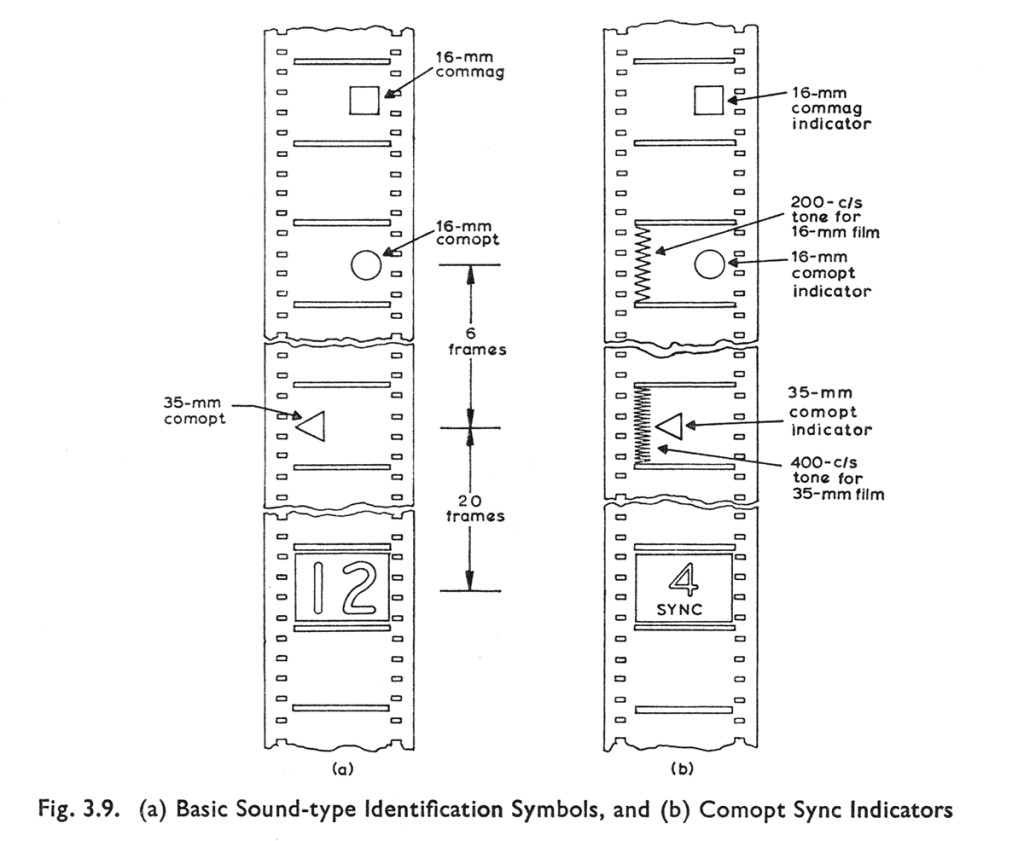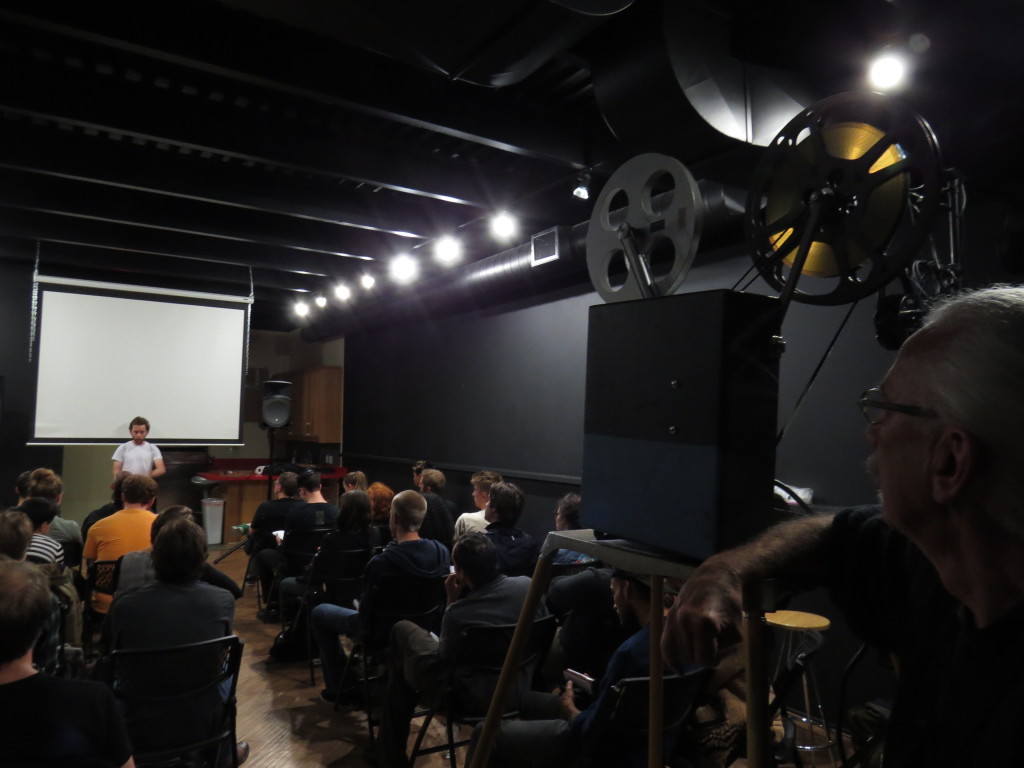
Click here to view our past screenings
Development
The most basic values of our film screenings are that (1) film makers are always compensated for their work (2) their work is presented to the best possible standards and (3) filmmakers pay no submission fees or shipping fees. Developing screenings that meet these values, however, can be a complicated process of negotiating expenses, venues and dates among all parties involved. To give an impression of this process, below is an open and honest illustration of the logistical and political elements involved in the genesis of our film screenings.
Film Submissions
While artist are often invited to have their works curated in our programs, Process Reversal also operates a continuous, open submission system for filmmakers interested in having their work curated. There are no fees associated with this system, nor any forms — we simply request that prospective filmmakers write to us at programming@processreversal.org. From there, we will try and respond in as timely a fashion as possible to indicate that we have received your submission; However, please note that submitting a work does not guarantee curation. Additionally, depending on the time of year, the manner of the work and many other factors, we may not be able to fully review your work for several months.
Here are some other matters to consider when submitting work…
Length & Content
We do not operate regulations on the length or content of the works presented. This is left to the individual curators to decide.
Exhibition Format
Our stance concerning exhibition format is to always honor the intentions of the film maker. Therefore, we allow for submissions in nearly all formats, including standard 8mm, super 8mm, 16mm, 35mm, and various video formats. However, as curators, we do take into consideration the prevalence of that exhibition format in regards to the work.
Occasionally, we will also be able to offer aid to film makers seeking to finish their work to a specific exhibition format, but lacking the necessary resources to do so. This could include services such as blow-up and reduction printing, soundtrack generation, high resolution film scans, and more. These services are often done in exchange for exhibition of the work, and thus act as a form of compensation to the filmmakers.
Off-Standard & Performance Based Film Projection
For 16mm, we typically consider the standard mode of projection to be non-anamorphic, xenon-balanced, sound speed (i.e. 24 fps) projection. However, we also honor off-standard projection request, such as silent speed (i.e. 18 fps) projection, anamorphic projection, tungsten balanced projection, etc. These request should be specified in your submission. Additionally, we will also consider performanced based pieces, but will need to have details regarding projection set-up, equipment details (i.e. modified projectors) and any other pertinent information.
Film Selection, Shipment & Compensation
Curation of a film program will occur at least two months in advance of the proposed exhibition date(s) prior to which the curator and the filmmakers will have discussed arrangements concerning the exhibition of their work, including (but not limited to) these factors:
Shipment
Prints should be received for primary inspection three weeks in advance of the proposed exhibition date. Process Reversal will always take responsibility for the shipping fees involved, but only through the understanding that the filmmaker ships their film in a reasonable period of time so as to avoid exorbitant shipping fees (i.e. overnight shipping). Shipping service are typically handled through insured, domestic mail services (i.e. USPS), but courier shipping can also be arranged if desired. In this regard, we operate a UPS shipping account.
Compensation
The perennial issue of film curation can be summed up by the conflict of two values stated in our mission: the financial accessibility of our programming and the fair compensation of work.
Filmmaking is a form of work, and as such, any films curated in our programs will always receive compensation. However, the degree and nature of this compensation is not regulated specifically by our collective — rather, we leave this up to the curator and the filmmaker to discuss, particularly as the accessibility to funds will vary significantly depending on the context and mode of presentation. To give an impression of some of the factors involved, we’ve illustrated some of the revenue streams that we typically source compensation from:
Parent Funds
The ideal source of compensation for filmmakers is through funds designated to our collective for programming purposes. These funds are generated through grants and donations to Process Reversal which are then regulated by our members for a variety of purposes within the scheme of our organization. The accessibility to these funds, however, may vary considerably depending on the availability of grants and donations, and so are not considered a financially sustainable method of compensating film makers and thus are not relied on.
Admission Fees
Any and all revenues generated through admission fees will go directly to the film makers. Often, however, these fees will be regulated by the venue and as such will vary according their policies. Typically, they require a specific fee or percentage of the revenue accumulated at the door, with the remainder falling to the curator to divide among the filmmakers. However, some venues do not regulate admission policies, and when this is the case the fees are left the curator to decide. In this situation, given that we consider the financial accessibility of our program to be a core value of our collective, we stress the use of a ‘pay-what-you-want,’ or donation based system. The full amount of these donations are always designated to the compensation of the filmmakers, and are divided as fairly as possible.
External Organizations & Workshops
Other finances for compensating film makers may be sourced through external organizations that designate funds for paying artist/screening fees. Occasionally, revenues produced through workshops can be directed to compensate filmmakers, particularly when the film program is being presented in conjunction with a workshop tour.
Compensation through Lab Services
As mentioned before, compensation can sometimes be arranged through the exchange of film-lab related services that we can perform utilizing our own facilities. This can include task such as blow-up and reduction printing, contact printing, color grading, film scanning, optical sound track generation and striking release prints for exhibition. Compensation through these services must be arranged at least 4 months in advance.
Presentation & Handling of the Films
Once a film has been received, Process Reversal and the curator agree to take on a set level of responsibilities concerning the handling and presentation of that film. These include…
Equipment Acquisition & Inspection
The curator is ultimately responsible for the acquisition of all necessary equipment for the presentation of a film program. Typically, however, they will rely on sourcing this equipment from the venues themselves. In this mode of operation, it is the curators responsibility to ensure that all their equipment has been properly maintained and that it will not present a risk of damaging the films in projection. A specific set of test will be performed to ensure that it meets our standards, including a cleaning of the projector, alignment of the lamps,
If Specialized materials are needed for the presentation of a program (i.e. modified projectors, anamorphic lens, loopers, etc), these will typically be sourced from Process Reversals own facilities and equipment.
Proper Handling & Inspection of all Films
Before each show, curators will be responsible for the building of the reels for projection. In this process, they will also take the time to inspect each film and recording notes relating to any damages apparent. If any repairs are needed (such as broken sprocket holes), these are performed by the curator during the building of the reel and noted in their log. These logs are then made available to the film makers
Liability & Insurance
Having to deal often with unique, camera original films, we go through extreme measures to ensure that prints are not damaged while in our possession. Of course accidents can happen, and in this event Process Reversal will insure any damages to the film.
Proper Presentation
Curators take responsibility to ensure that films are presented according to the wishes of the film maker. Often, they will handle all matters relating to the audio visual environment of the screening, including setup and operation of the projector(s) and monitoring of the sound levels.
Venues & Mobility
As mentioned before, film programs are often curated to coincide with an extended workshop tour by one or more of our members. This offers us the ability to reduce the cost of the screenings to a minimum by subtracting multiple shipping fees and travel cost of the curator. Additionally, this structure maximizes the theoretical audience for the program and by extension the revenue streams from which we can source compensation for the films.
Under this mobile system, venues are arranged in a similar fashion to our workshops in that we seek out collaborations with various micro-cinemas and groups that share our values. However, there are a few responsibilities that we request be filled by these host venues:
Advertisement
The curator will take responsibility for the generation of advertising materials, but we do request that venues use their pre-existing advertising channels to promote the screening.
Equipment
While it is ultimately the job of the curator to ensure that the proper equipment is present at the venue for exhibition, if arrangements are made to use the venues audio visual equipment, we ask that we’re given a day in advance to inspect the equipment and ensure that they meet our standards.
Liability
Liability concerning the audience, includes matters of tort and personal damage, are the responsibility of the host venue. Organizations unfamiliar with liability
Prospective Venues
If you’re a venue that’s interested in hosting a screening of our film programs, we would love to hear from you. Feel free to write to us at programming@processreversal.org.

Frenkel Defects – LOMAA, London, Ontario

